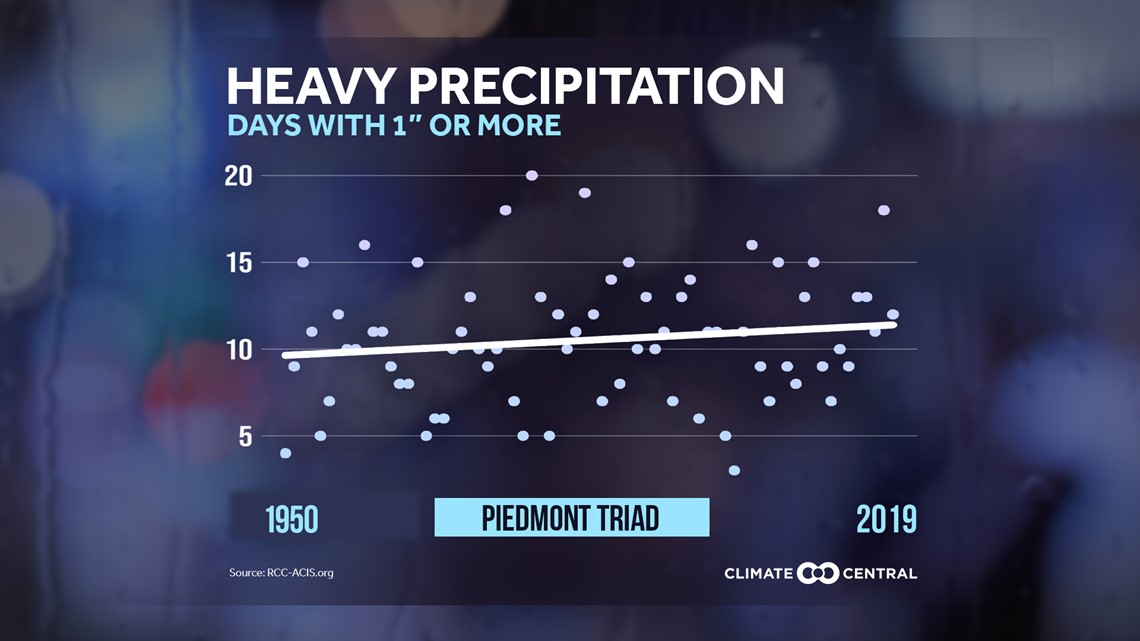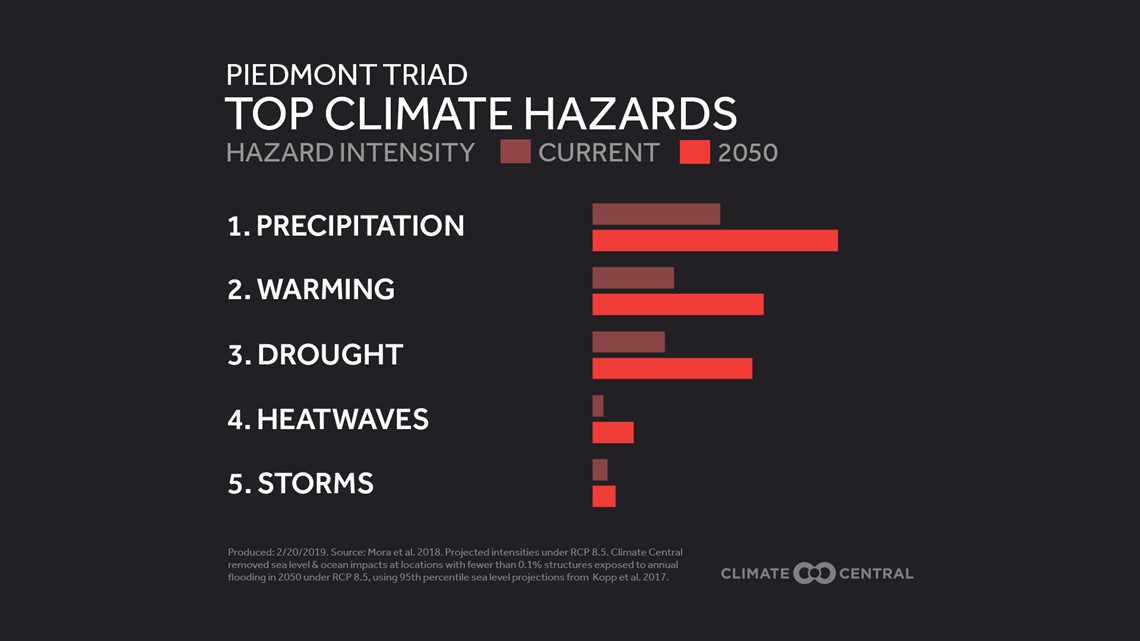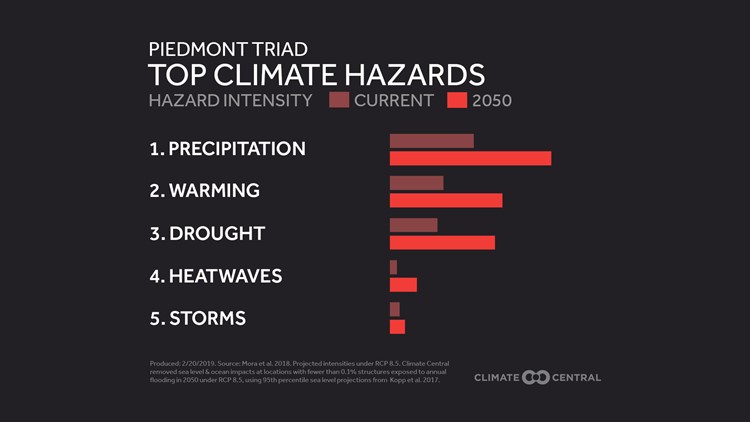GREENSBORO, N.C. — Climate change has impacted all corners of the world. The Piedmont Triad hasn't been spared.
Across most metrics, Greensboro and surrounding areas have seen worsening conditions.
As we celebrate Earth Day on Friday, WFMY News 2 looked at ways climate change has altered the Piedmont Triad.
Temperatures
The climate has warmed since the first Earth Day in 1970.
The Piedmont Triad has seen temperatures rise more than the national and state averages, according to Climate Central. Since 1970, our average temperature has increased by 3.3°.
In the same time, North Carolina's average temperature rose 2.4°. That's just below what the whole U.S. saw, which is 2.6°.
Climate Central data also found in 2019, the Piedmont saw about 25 summer days that were warmer than normal.
The warming trend spread to the other three seasons. We've seen more muggy nights and higher low temperatures in fall, spring and winter. Average fall temperatures in our area rose 2.4° between 1970 and 2018, according to Climate Central, and winters are an average 4.1° warmer.
That leads to all sorts of environmental costs. It also impacts your wallet with higher air conditioning bills because we need to run A/C units more often to comfortably cool our homes.
Rainfall
You're not imagining it. We're getting more rain.
The weather events are also getting stronger. Climate Central data found the average number of days with heavy precipitation has increased since 1950.
The actual number fluctuates yearly. The trends show it increases over time, though.


This has caused flooding to become a major problem in recent decades across North Carolina.
We've seen storms like Hurricane Matthew and Florence cause billions of dollars in damage. More localized rain events have left parts of our cities and town underwater.
Mosquitos
Mosquitos are pests we deal with every year when headed outdoors. They drive some of us mad. The problem has gotten worse over the years.
Climate Central categorizes mosquito days as ones that:
- have temperatures between 50-95° F
- have a relative humidity of 42% or higher
The organization said mosquitos thrive in environments that meet each of those conditions.
Climate Central's data found last decade saw 16 more mosquito days than the 1980s.
Future outlook
A study from the organization warns climate hazards will intensify between now and 2050. The study identified five areas we can expect to see drastic changes.


The whole country can expect to see more severe hazards due to climate change. Precipitation and rising sea levels are two of the top concerns across North Carolina.


